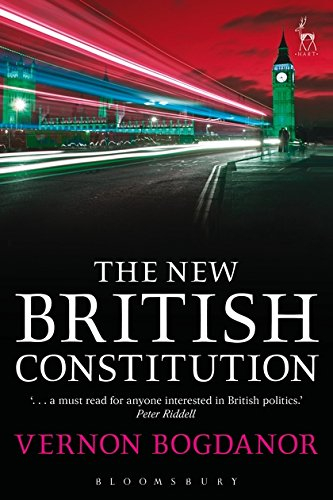Synopsis
The last decade has seen radical changes in the way we are governed. Reforms such as the Human Rights Act and devolution have led to the replacement of one constitutional order by another. This book is the first to describe and analyse Britain's new constitution, asking why it was that the old system, seemingly hallowed by time, came under challenge, and why it is being replaced.
The Human Rights Act and the devolution legislation have the character of fundamental law. They in practice limit the rights of Westminster as a sovereign parliament, and establish a constitution which is quasi-federal in nature. The old constitution emphasised the sovereignty of Parliament. The new constitution, by contrast, emphasises the separation of powers, both territorially and at the centre of government.
The aim of constitutional reformers has been to improve the quality of government. But the main weakness of the new constitution is that it does little to secure more popular involvement in politics. We are in the process of becoming a constitutional state, but not a popular constitutional state. The next phase of constitutional reform, therefore, is likely to involve the creation of new forms of democratic engagement, so that our constitutional forms come to be more congruent with the social and political forces of the age. The end-point of this piecemeal process might well be a fully codified or written constitution which declares that power stems not from the Queen-in Parliament, but, instead, as in so many constitutions, from `We, the People'.
The old British constitution was analysed by Bagehot and Dicey. In this book Vernon Bogdanor charts the significance of what is coming to replace it.
The Human Rights Act and the devolution legislation have the character of fundamental law. They in practice limit the rights of Westminster as a sovereign parliament, and establish a constitution which is quasi-federal in nature. The old constitution emphasised the sovereignty of Parliament. The new constitution, by contrast, emphasises the separation of powers, both territorially and at the centre of government.
The aim of constitutional reformers has been to improve the quality of government. But the main weakness of the new constitution is that it does little to secure more popular involvement in politics. We are in the process of becoming a constitutional state, but not a popular constitutional state. The next phase of constitutional reform, therefore, is likely to involve the creation of new forms of democratic engagement, so that our constitutional forms come to be more congruent with the social and political forces of the age. The end-point of this piecemeal process might well be a fully codified or written constitution which declares that power stems not from the Queen-in Parliament, but, instead, as in so many constitutions, from `We, the People'.
The old British constitution was analysed by Bagehot and Dicey. In this book Vernon Bogdanor charts the significance of what is coming to replace it.
Titre original : The New British Constitution (2009)
Moyenne
-
0 vote
-
1 édition pour ce livre
2011 Editions Bloomsbury
310 pages
ISBN : 9781841136714
Qui a lu ce livre ?
Aucun membre n'a lu ce livre
Aucun membre ne lit ce livre
1 membre veut lire ce livre
1 membre possède ce livre
chronique de blog
Aucune chronique de blog pour le moment.
En vous inscrivant à Livraddict, vous pourrez partager vos chroniques de blog !



Pour poster un message, il faut être inscrit sur Livraddict
Aucun commentaire pour le moment.